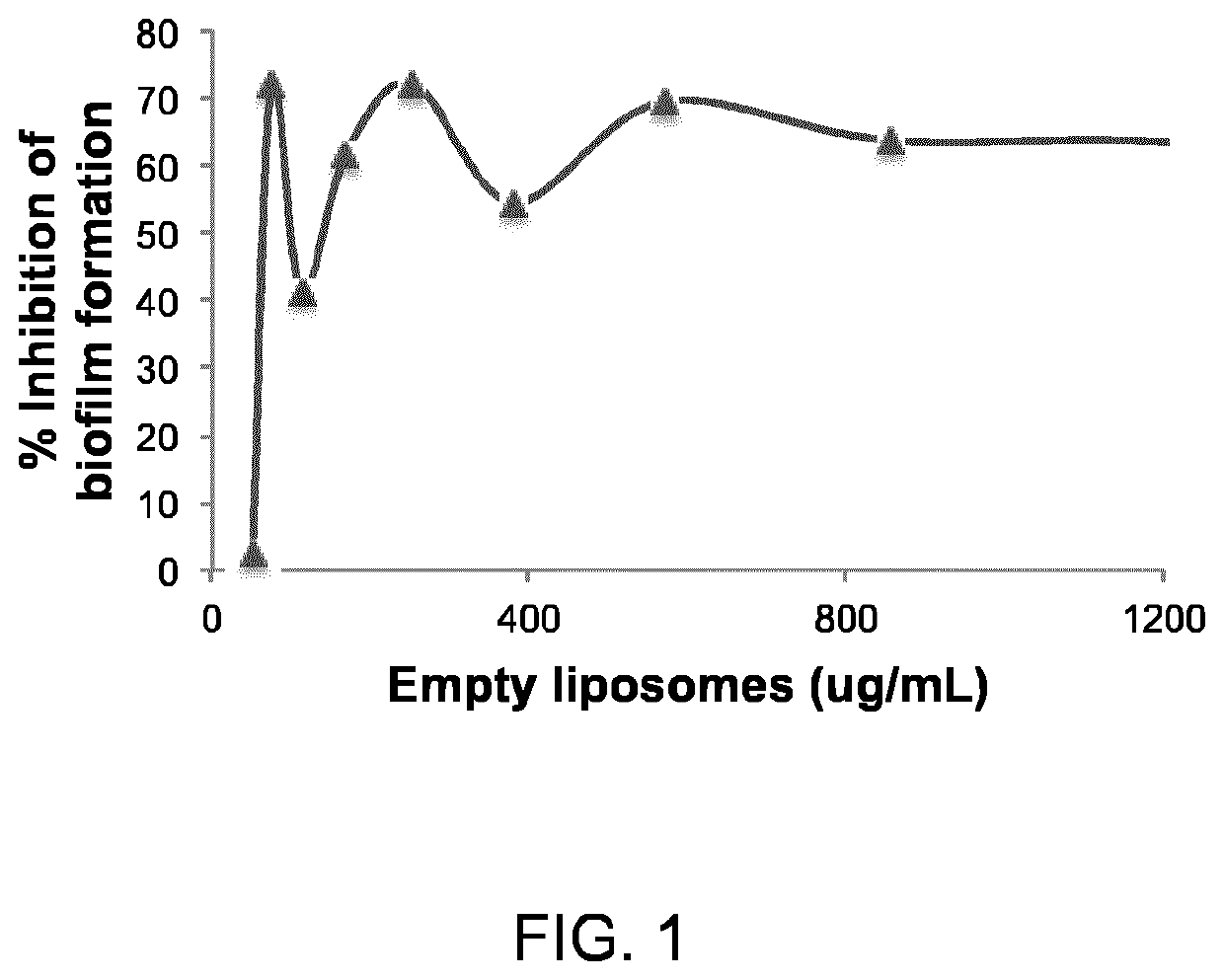Liposomes for inhibiting biofilm formation
a technology of liposomes and biofilms, applied in the direction of organic active ingredients, disinfection, antibacterial agents, etc., can solve the problems of chronic and difficult to cure biofilm-associated infections, biofilm formation is also an issue, and other organ infections, etc., to prevent or reduce the formation of biofilms, eradicate or reduce existing biofilms
- Summary
- Abstract
- Description
- Claims
- Application Information
AI Technical Summary
Benefits of technology
Problems solved by technology
Method used
Image
Examples
example 1
[0155]Inhibition of P. aeruginosa multi-drug resistant strain 6077 biofilm A preferred inventive mixture of empty liposomes proved to decrease biofilm formation by Pseudomonas aeruginosa strain 6077, as revealed by the Crystal violet method. Said preferred inventive mixture of empty liposomes consists of a 1:1 (weight per weight—w / w) mixture of said first empty liposomes and said second liposomes, wherein said first empty liposome is composed of a 1:1 weight ratio (1:1 w / w; 35:65 molar ratio) of sphingomyelin (SM) and cholesterol (CHOL), and said second empty liposomes is composed exclusively of SM.
[0156]Method
[0157]Briefly, Pseudomonas aeruginosa strain 6077 was grown in Trypticase Soy Broth (TSB) and diluted in LB broth containing 2% glucose to a concentration of 1×107 or of 1×106 colony forming units (CFU) per mL. One hundred microliters (100 μl) of the diluted inoculum was added to the wells of a 96-well flat-bottomed microtiter plate. Increasing concentrations of preferred inve...
PUM
| Property | Measurement | Unit |
|---|---|---|
| mean diameter | aaaaa | aaaaa |
| mean diameter | aaaaa | aaaaa |
| mean diameter | aaaaa | aaaaa |
Abstract
Description
Claims
Application Information
 Login to View More
Login to View More - R&D
- Intellectual Property
- Life Sciences
- Materials
- Tech Scout
- Unparalleled Data Quality
- Higher Quality Content
- 60% Fewer Hallucinations
Browse by: Latest US Patents, China's latest patents, Technical Efficacy Thesaurus, Application Domain, Technology Topic, Popular Technical Reports.
© 2025 PatSnap. All rights reserved.Legal|Privacy policy|Modern Slavery Act Transparency Statement|Sitemap|About US| Contact US: help@patsnap.com

